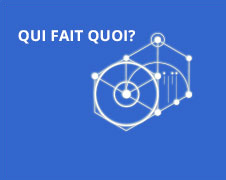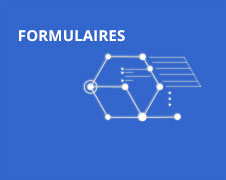Tania Lecomte
- Professeure titulaire
-
Faculté des arts et des sciences - Département de psychologie
Marie-Victorin, local C-358
Médias
Portrait
Expertise de recherche
Mes travaux visent l’amélioration des traitements et services offerts aux personnes aux prises avec un trouble mental grave (TMG), particulièrement les troubles psychotiques. Je développe et valide de nouveaux outils et de nouvelles interventions pour cette clientèle.
Instruments de mesure développés ou validés par mon équipe : CASIG (Client Assessment of Strengths, Interests and Goals), FESFS (First Episode Social Functioning Scale), SERS-SF (Self-Esteem Rating Scale Short-Form), versions françaises : brief NEO-PI, Cognitive Bias Questionnaire, SAQ-A30 (Social Anxiety Questionnaire), PTS-Q (Personal Therapist Style Questionnaire).
Thérapies ou interventions développées et validées (ou en cours) : Je suis Super (groupe-estime de soi), TCC (groupe - thérapie cognitive comportementale pour psychose), AVEC (Accompagner, Valider, Échanger, comprendre – groupe TCC pour parents de personnes avec un trouble psychotique), CAP (groupe ou individuel- compassion, acceptation et pleine conscience), TCC-SE (groupe- TCC pour le soutien à l’emploi), TCC pour meilleure santé mentale au travail (groupe – TCC pour dépression liée au travail), À deux c’est mieux (groupe – relations amoureuses), Chilltime (application mobile pour la régulation émotionnelle en lien avec l’abus de susbtance).
Thématiques d’intérêt en lien avec les TMG, la schizophrénie, la psychose ou la dépression : la cognition sociale/métacognition, les relations interpersonnelles (solitude, amoureuses, réseau social), les troubles concomitants (abus de substances, anxiété sociale, trouble de personnalité), insight, traumatismes dans l’enfance, insertion scolaire et professionnelle, meilleures pratiques : implantation, formation, expertise, compétence.
Méthodologies utilisées :
Études expérimentales ou quasi-expérimentales, essai cliniques randomisés, études longitudinales (trajectoires, A-B-A, EMA (ecological momentary assessment), journaux de bord, ou protocoles à sujets uniques répétés (intra-sujet)), études qualitatives (grounded theory, phénoménologique, thématique, focus group), méta-analyses, méta-review (GRADE), nouvelles technologies (application mobile, téléthérapie, réalité virtuelle).
Biographie
Professeure titulaire, chercheuse du Centre de Recherche de l’Institut Universitaire en Santé mentale de Montréal (CR-IUSMM), membre du CRIPCAS, chercheure FRQS-séniore, membre OPQ, directrice du Réseau Canadien pour la Recherche en Schizophrénie et Psychoses.
Affiliations et responsabilités
Affiliations de recherche
Enseignement et encadrement
Enseignement
Cours siglés (session en cours uniquement)
Programmes
- 122010 – Baccalauréat en psychologie - Campus Montréal
- 122012 – Baccalauréat en neuroscience cognitive
- 122019 – Baccalauréat en psychologie - Campus Laval
- 122020 – Majeure en psychologie
- 322013 – Doctorat en psychologie, option Psychologie clinique (D. Psy.)
- 322016 – Doctorat en psychologie - Recherche et intervention, option Psychologie clinique (Ph. D. R-I)
Encadrement
Thèses et mémoires dirigés (dépôt institutionnel Papyrus)
Les déficits cognitifs chez les individus présentant un trouble de la personnalité comorbide à la schizophrénie : une étude de la portée
Cycle : Doctorat
Diplôme obtenu : D. Psy.
Anxiété sociale et psychose : effet de deux interventions novatrices sur l'anxiété sociale
Cycle : Doctorat
Diplôme obtenu : Ph. D.
Effectiveness of acceptance and commitment therapy (ACT) with individuals in custodial settings with and without mental disorders : a meta-analysis
Cycle : Maîtrise
Diplôme obtenu : M. Sc.
L’importance de la cognition sociale et le potentiel des nouvelles technologies dans les interventions auprès des personnes présentant un trouble concomitant
Cycle : Doctorat
Diplôme obtenu : Ph. D.
Validation de la stabilité temporelle et de la sensibilité au changement de la version révisée de l’outil Client Assessment of Strengths Interests and Goals (CASIG-rev)
Cycle : Doctorat
Diplôme obtenu : D. Psy.
Improving romantic and sexual functioning in people with psychosis : current state of knowledge and evaluation of new resources
Cycle : Doctorat
Diplôme obtenu : Ph. D.
Un modèle sociocognitif des trajectoires d'adaptation à la rupture amoureuse chez les jeunes avec et sans trouble mental grave
Cycle : Doctorat
Diplôme obtenu : Ph. D.
Les biais cognitifs chez les individus ayant un trouble psychotique
Cycle : Doctorat
Diplôme obtenu : Ph. D.
Adaptation face à une rupture amoureuse non-désirée chez les jeunes adultes de 18 à 25 ans, selon les traumatismes à l’enfance, l’attachement et la régulation émotionnelle
Cycle : Maîtrise
Diplôme obtenu : M. Sc.
Projet pilote d’implantation d’une banque de données à la Clinique universitaire de psychologie de l’Université de Montréal (CUP) : une étude qualitative des impressions des cliniciens face à la mise en œuvre d’un système de collecte de données cli
Cycle : Maîtrise
Diplôme obtenu : M. Sc.
De la pratique à la maison à la réalité virtuelle : expérience subjective de personnes ayant un trouble psychotique avec anxiété sociale suivant une thérapie de pleine conscience
Cycle : Doctorat
Diplôme obtenu : D. Psy.
Dropouts rates in psychosocial interventions for people with both severe mental illness and substance misuse : a systematic review
Cycle : Doctorat
Diplôme obtenu : D. Psy.
Behavioral activation to prevent depression in at-risk adolescents : a pilot feasibility, acceptability and potential impact trial
Cycle : Doctorat
Diplôme obtenu : D. Psy.
À deux, c’est mieux : étude pilote portant sur la faisabilité, l’acceptabilité et l’impact potentiel d’une intervention de groupe sur les relations amoureuses pour jeunes hommes ayant un trouble psychotique
Cycle : Maîtrise
Diplôme obtenu : M. Sc.
Social cognition as mediator of romantic breakup adjustment in young adults who experienced childhood maltreatment
Cycle : Maîtrise
Diplôme obtenu : M. Sc.
The role of metacognitive profiles in social functioning and social network evolution in schizophrenia
Cycle : Doctorat
Diplôme obtenu : Ph. D.
Preliminary validation of a group therapy for individuals with psychosis and childhood trauma histories using Acceptance and Commitment Therapy.
Cycle : Doctorat
Diplôme obtenu : Ph. D.
Exploration de la reconnaissance des émotions en schizophrénie comorbide
Cycle : Doctorat
Diplôme obtenu : Ph. D.
Traitement de troisième vague pour les personnes atteintes d’un trouble psychotique et d’anxiété sociale : influence de la pratique quotidienne de la pleine conscience
Cycle : Doctorat
Diplôme obtenu : D. Psy.
Étude sur l’expérience des relations amoureuses des jeunes hommes ayant vécu un premier épisode psychotique
Cycle : Doctorat
Diplôme obtenu : D. Psy.
Influence des traits et troubles de personnalité sur l’intégration au travail de personnes aux prises avec un trouble mental grave
Cycle : Doctorat
Diplôme obtenu : Ph. D.
Facteurs entravant la formation de relation amoureuse chez les individus ayant vécu un premier épisode psychotique
Cycle : Doctorat
Diplôme obtenu : D. Psy.
Narrative development and supported employment of persons with severe mental illness
Cycle : Doctorat
Diplôme obtenu : D. Psy.
Fonctionnement social et rétablissement à la suite d'un premier épisode psychotique
Cycle : Doctorat
Diplôme obtenu : Ph. D.
La schizophrénie dissociative : nouvelle entité clinique, trouble comorbide ou autres considérations nosographiques
Cycle : Doctorat
Diplôme obtenu : Ph. D.
Pleine conscience, régulation émotionnelle et psychose : états des connaissances et applications cliniques
Cycle : Doctorat
Diplôme obtenu : Ph. D.
Les déficits cognitifs peuvent-ils aider à distinguer un trouble psychotique avec toxicomanie d’une psychose induite par consommation de méthamphétamines?
Cycle : Maîtrise
Diplôme obtenu : M. Sc.
The Experience of Treatment of Persons Presenting with Concomitant Psychotic and Borderline Personality Disorders
Cycle : Doctorat
Diplôme obtenu : D. Psy.
Étude des résultats des traitements psychosociaux auprès de jeunes adultes présentant un premier épisode psychotique : influence des traits de personnalité
Cycle : Doctorat
Diplôme obtenu : Ph. D.
Projets
Projets de recherche
What about love? Understanding romantic relationships and loneliness in young adults with a stigmatized mental illness
Centre de Recherche Interdisciplinaire sur les Problèmes Conjugaux et les Agressions Sexuelles ( CRIPCAS )
Favoriser un retour au travail durable chez les travailleurs en absence maladie liée à un problème de santé psychologique :évaluation de l'intervention HealthyMinds en ligne
A novel web-based mental health intervention integrating peer support and clinical moderation to enhance recovery and prevent relapse in adults diagnosed with psychotic disorders: A pragmatic feasibility study of Horyzons-Canada
Gaïa Project: Intervention program for adolescents who have engaged in sexual abuse and their families
Sustainable return to work for people with musculoskeletal and mental impairments: Improving communication and concertation among stakeholders
Moderniser les pratiques d’évaluation : la technologie au service de l’interdisciplinarité et du bien-être des enfants
Predicting future primary psychotic disorders in youth with methamphetamine-psychosis disorder.
CENTRE DE RECHERCHE INTERDISCIPLINAIRE SUR LES PROBLÈMES CONJUGAUX ET LES AGRESSIONS SEXUELLES (CRIPCAS)
Disclosing a psychiatric condition in the workplace: Evaluation of stigma and work outcomes
Disclosing a psychiatric condition in the workplace : Evaluation of stigma and work outcomes
A randomized controlled trial on group CBT for social anxiety in people with a first episode of psychosis
FEI sans restriction Tania Lecomte
Preventing depression relapse and improving well-being at work
Preventing depression relapse and improving well-being at work
TAILORED COGNITIVE-BEHAVIOUR THERAPY FOR INDIVIDUALS WITH SEVERE MENTAL ILLNESS IN SUPPORTED EMPLOYMENT PROGRAMS - EFFECTS ON WORK OUTCOMES AND RELATED VARIABLES
FACTORS ASSOCIATED WITH THE WORK INTEGRATION OF PEOPLE WITH SEVERE MENTAL DISORDERS IN SOCIAL ENTERPRISES LOCATED IN CANADA
L'ETUDE D'INTERVENTIONS VISANT LE RETABLISSEMENT DE PERSONNES PRESENTANT DES TROUBLES MENTAUX GRAVES ET COMPLEXES
ARUC INTERNATIONALES SANTE MENTALE-CITOYENNETE
L'ÉTUDE D'INTERVENTIONS VISANT LE RÉTABLISSEMENT DE PERSONNES PRÉSENTANT DES TROUBLES MENTAUX GRAVES ET COMPLEXES
TAILORED COGNITIVE-BEHAVIOUR THERAPY FOR INDIVIDUALS WITH SEVERE MENTAL ILLNESS IN SUPPORTED EMPLOYMENT - EFFECT ON WORK OUTCOMES AND RELATED VARIABLES
TAILORED COGNITIVE-BEHAVIOUR THERAPY FOR INDIVIDUALS WITH SEVERE MENTAL ILLNESS IN SUPPORTED EMPLOYMENT - EFFECT ON WORK OUTCOMES AND RELATED VARIABLES
THE METHAMPHETAMINE AND PSYCHOSIS STUDY (MAPS)
SCHIZOPHRÉNIE ET ANXIÉTÉ SOCIALE - LE RÔLE DES DEFICITS DE RECONNAISSANCE DES AFFECTS FACIAUX
Rayonnement
Publications et communications
Publications
Articles récents
Lecomte, T., Mueser, K.T., MacEwan, G.W., Thorton, A.E., Buchanan, T., Bouchard, V., Goldner, E., Brink, J., Lang, D., Kang, S., Barr, A.M.; Honer, W.G. (sous presse). Predictors of Persistent Psychotic Symptoms in Persons with Metamphetamine Abuse Receiving Psychiatric Treatment. Journal of Nervous and Mental Disease
Lecomte, T., Corbière, M.; Leclerc, C. (sous presse). Les interventions basées sur les résultats probants en réadaptation psychiatrique – lesquelles prioriser et pourquoi ? Canadian Journal of Psychiatry.
Khoury, B., Lecomte, T., Comtois, G.; Nicole, L. (sous presse). Third wave strategies for emotion regulation in early psychosis: A pilot study. Early Intervention in Psychiatry.
Tranulis, C., Lecomte, T., El-Khoury, B., Lavarenne, A.; Brodeur-Côté, D. (2013). Changing the name of schizophrenia : patient perspectives and implications for DSM-V. PLOS ONE, 8(2), e55998.
Sanford, N., Lecomte, T., Leclerc, C., Wykes, T.; Woodward, T. (2013). Change in Jumping to Conclusions Linked to Change in Delusions in Early Psychosis. Schizophrenia Research.epub ehead of print
Panenka, W.J., Procyshyn, R.M., Lecomte, T., MacEwan, G.W., Flynn, S.W., Honer, W.G.; Barr, A.M. (2013). Methamphetamine use : a comprehensive review of molecular preclinical and clinical findings. Drug and Alcohol Dependance, 129(3), 167-169.
Beauchamp, M-C, Lecomte, T., Lecomte, C., Leclerc, C.; Corbière, M. (2013). Do personality traits matter when choosing a group therapy for early psychosis? Psychology and Psychotherapy: Theory, Research and Practice, 86(1), 19-32 DOI: 10.1111/j.2044-8341.2011.02052.x
Addington, J.; Lecomte, T. (2012) Cognitive behaviour Therapy for schizophrenia. F1000 Med Reports2012, 4(6). doi: 10.3410/M4-6.
Bouchard, V., Lecomte, T.; Mueser, K. T. (2012). Could cognitive deficits help distinguish methamphetamine-induced psychosis from a psychotic disorder with substance abuse? Mental Health and Substance Abuse, DOI:10.1080/17523281.2012.693522, 1-10.
Bourdeau, G., Masse, M.; Lecomte, T. (2012). Social functioning in early psychosis: are all the domains predicted by the same variables? Early Intervention in Psychiatry, 6(3), 317-321.
El-Khoury, B.; Lecomte, T. (2012). Emotional Regulation and Schizophrenia. International Journal of Cognitive Therapy, 5(1), 67-76.
Leclerc, C.; Lecomte, Tania. (2012). TCC pour premiers épisodes de psychose : pourquoi la thérapie de groupe obtient les meilleurs résultats ? Journal de thérapie comportementale et cognitive, 22, 104-110.
Lecomte, T.; Lecomte, C. (2012). Are we there yet? Commentary on special issue on psychotherapy integration for people with psychosis. Journal of Psychotherapy Integration, 22(4), 375-381.
Lecomte, T., Leclerc, C.; Wykes, T. (2012). Group CBT for early psychosis – are there still benefits one year later? International Journal of Group Psychotherapy, 62, 309-322.
Lecomte, T., Laferrière-Simard, M-C; Leclerc, C. (2012). What does the alliance predict in group interventions for early psychosis? Journal of Contemporary Psychotherapy, 42, 55-64.
Panenka, W.J., Procyshyn, R.M., Lecomte, T., MacEwan, G.W., Flynn, S.W., Honer, W.G.; Barr, A.M. (2012). Methamphetamine use : a comprehensive review of molecular preclinical and clinical findings. Drug and Alcohol Dependance, s0376-8716(12), 00457-7.
Thérien, P., Tranulis, C., Lecomte, T., & Bérubé, F-A (2012). The experience of treatment of people with concomitant psychotic and borderline personality disorders. Psychosis, 4, 63-73.
Recent book
Lecomte Tania; Leclerc C. (Eds) Manuel de réadaptation psychiatrique, 2e édition (Handbook of psychiatric rehabilitation). Québec : Les presses de l’Université du Québec (2012).
Disciplines
- Psychologie
Champ d’expertise
- Psychopathologie
- Évaluation
- Psychose
- Réadaptation psychiatrique
- Troubles mentaux graves
- Schizophrénie
- Thérapie cognitivo-comportementale
- Dépression
- Santé mentale
- Réadaptation
- Bien-être psychologique au travail
- Couple et sexualité
Aide en ligne pour votre profil | Nous joindre
Le Répertoire des professeurs est propulsé par les données du ![]() SADVR et est un projet du CENR.
SADVR et est un projet du CENR.


